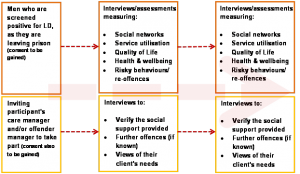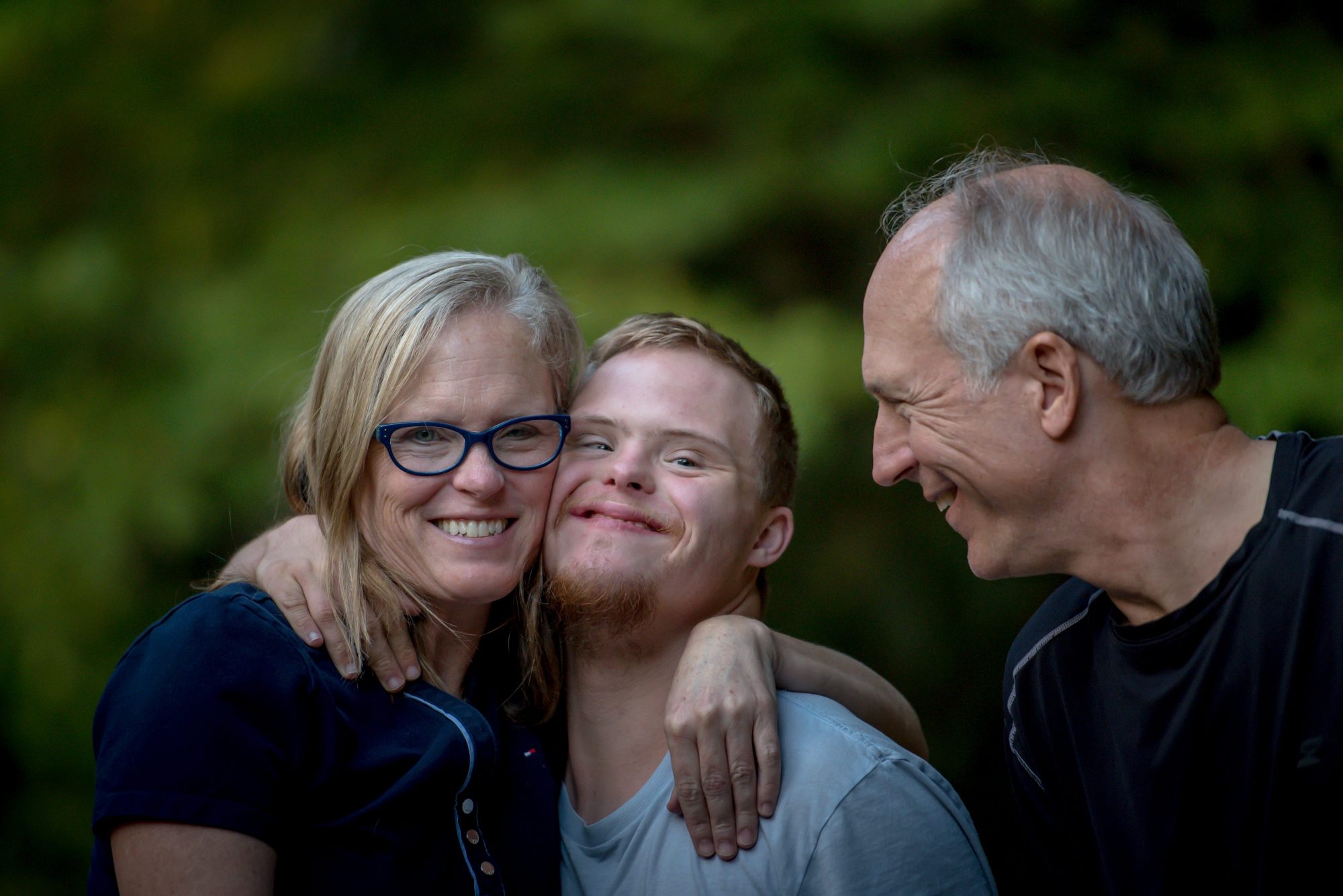Offenders & Social Care – Intellectual Disabilities (OFFSCA-ID)
Funding has been awarded by SSCR (School for Social Care Research) for Professor Glynis Murphy to carry out the project for two years, working collaboratively with Dr Rachel Forrester-Jones and Dr Nick Gore, and with various NHS and prison sites across England. Professor Jenny Beecham will be assisting with the health economics. The research workers on the project include Pak Chiu, Emily Blake, Magali Barnoux and Jenny Cooke.
Offenders & Social Care- Intellectual Disabilities (OFFSCA- ID) is a research project looking at the cost and benefits of social care, and its effectiveness in preventing people with intellectual disabilities from re-offending.
Working alongside adults with intellectual disabilities who have just left prison, we wish to find out:
- Does social care input, on leaving prison, affect mood, behaviour and quality of life of people with ID?
- What are the costs of social care support for these ex-offenders with ID?
- How do the social care costs relate to the outcome for the ex-offenders with ID?
Approvals have been obtained from the NHS ethics committee (Cardiff). Further approvals are also being obtained from NHS Research and Development Offices and the National Offender Management Service (NOMS).
 |
For an easy read version about OFFSCA-ID |
 |
Poster relating to the project |
Research Process
People with learning disabilities are thought to be represented in not insignificant numbers in the prison population in the UK: recent studies have suggested about 7% of people in prison have a learning disability. Yet on leaving prison they often receive remarkably little support as Community Learning Disability Teams often deem them too able for support, and social services argue that they do not meet FACS (Fair access to care services) criteria. However, anecdotal evidence suggests that small amounts of support can make a big difference to outcomes, such as re-offending.
Fig. 1 Design and process of OFFSCA- ID
A sample of ex-offenders will also be interviewed to explore their views on life since leaving prison; the opportunities, challenges and barriers to a good quality of life, and their satisfaction with the support received
| T1
Within one month of leaving prison |
T2
Nine-month follow-up |
|
 |
||
This project aims to select people (who have already screened positive for learning disabilities), as they are leaving prison, and will follow them up for one year. Measures of their health, well-being, re-offending and service utilisation will be made at two-time points (T1- within one month of leaving prison, T2- in nine months’ time). Statistical tests will be carried out to document outcomes, as well as the effects and costs of social care input. Figure. 1 further illustrates the research process.
Service User’s Involvement
A group of service users who have learning disabilities and may have been involved with the Criminal Justice System, known as the ‘Working for Justice’ group, has already provided some advice on the design of the project.
The service users will also be helping us to design the exact questions for the qualitative part of the project, where we will be interviewing some participants to seek their views of the support they have received; their personal experiences of life after prison; the opportunities, challenges and barriers to a good quality of life.
In addition, we have two service users with learning disabilities on the project Steering group.
If you would like more information about the ‘Working for Justice’ group, please contact Neisha Betts at neisha.betts@keyring.iorg
Contact us
If you wish to get in touch or have any queries about the project, please contact:
Professor Glynis Murphy– Main lead
Dr Nick Gore– Leading on the employment part of the project
Dr Rachel Forrester-Jones– Leading on a social network
Professor Jennifer Beecham- Leading on social economics
Cornwallis Building
University of Kent
Canterbury
Kent
CT2 7NF
Telephone: 01227 823792
Email: J.K.Beecham@kent.ac.uk
